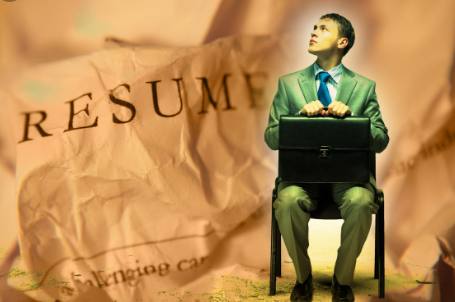Are you familiar with the saying ‘people are your business’? Do you believe it to be true? We certainly do. And we believe that one of the most difficult, yet most important elements of any business is the hiring process. The message is simple … avoid killer hires as they can have a big impact on the future of a business.

Bad hires are expensive. They take up staff time and may sour relationships with customers or clients. Replacing them means the expenses of recruiting and onboarding their replacement. The alternative—shuffling them from one position to another—brings even more problems. With enough bad hires floating around, great organizations quickly become mediocre.
Are you one that believes that creativity in hiring can be learned? We are among that group. We also believe in suggestions for innovative thinking can boost team creativity through effective collaboration. Through a series of sparks and not a single flash of insight. Certainly our way of thinking.
During the hiring process, you really must take into consideration many candidate behaviors, attitudes, and strengths. Even the person who is talented, sometimes don’t have the right personality and team chemistry to add to your team.
Here are some of the top ways to make sure your hiring practices bring in skilled people who fit well within your organization and team:
Interviews
Tune in carefully during the interview process to gauge how well a person would fit in the office every day, where they’d inevitably interact with their colleagues and be part of the office ecosystem, matters quite a bit.
Don’t rush
The most important way to prevent a bad hire is to take your time. In a recent CareerBuilder study, 43 percent of respondents said they had made a bad hire because they needed to fill a position quickly.
Even if an open position is taxing your team’s resources in the short run, weigh that factor against the overall morale, culture, and productivity of the organization. Don’t hire until you are sure you have the right candidate.
Know what you want

Have a clear understanding of the position’s responsibilities and cultural fit, and make sure they’re communicated clearly. At every step—from the job description through the interview process, be upfront about the role and the organization’s values.
Looking for the perfect candidate
The desire to find a perfect candidate will often lead to looking for more qualifications that a job may require. Hiring overqualified people usually end up in an unhappy employee because they are not sufficiently challenged.

An employee gets very good at a job through experience. So trust this process, which will permit you to hire a 7 on your rating scale and growing them to a 10.
Succumbing to the affinity effect
Familiar with the affinity effect? This effect means we tend to hire people like ourselves. When we make decisions with our gut like we often do, we are subconsciously evaluating in comparison to ourselves.
This is not what you want to do. Try to find people who think differently than you in a way that complements your thinking.
Ask smart questions
Formulate questions ahead of time that explore ability, potential and fit and that will give you key insights into how well each candidate fits within the position and team.
Elon Musk routinely asks interviewees to recall a problem they solved and explain how they arrived at each step along the way. The more detailed the answer, Elon explains, the more it shows that they really thought through the problem.
Related: Employee Traits That Will Disrupt Your Business
Look for the right person, not just the right skills
Companies committed to good hiring practices emphasize personality, cultural fit, and diversity. Ask your current employees how best to attract candidates with passion and initiative—those with the willingness to learn, to ask questions and figure things out.
Too cost driven
Don’t lose a highly qualified candidate because they want more than you’re offering. While salary is rarely the most significant factor in a candidate’s decision process, it is still significant. But be aware of any potential internal issues in comparative salaries and, if they are present, deal with them before you decide.
No job success profile
Don’t just focus on the tasks required to perform a job. Also consider the skills and behaviors necessary to be successful in that position. Before writing a job description, draw up the list of competencies necessary for success. Can you picture someone who was in the job who did an average job as well as someone who was a star? That will help you in defining a profile of these success competencies.
Assess skills
Include a sample task or skills test in the hiring process. These assessments not only ensure that candidates actually possess the skills they claim to have but also help them gain a more detailed understanding of the work they’ll be doing.
Don’t ignore the long term
The best hiring decisions are not short-sighted. Beyond considering what a candidate can do now, foster long-term stability by looking at the potential they bring for advancement and growth within the company.
Include subject-matter experts on hiring teams
Especially for critical positions that require technical proficiency, involve subject-matter experts who can ask specific questions to determine the potential hire’s knowledge and skills. Bring in an outside resource if necessary, especially for critical roles.
Always check references
This is a critical step, but some recruitment processes fail to follow through. You can learn a lot from reference checking, and it’s important to listen to what is being said and how it is said.
Wrong interview focus
Do you know the biggest mistake in the hiring interview process? It is the fact we spend way too much time on topics that don’t help us in deciding whether a candidate has the requisite skills. Remember the best predictor of future success is past behavior.
The bottom line
Spend your interview time with very specific, very behavioral questions. For example, ask the candidate to tell you about a time when they had too much on their plate or to describe an experience when they had to deal with an angry customer.
The good news is that getting the hiring process right isn’t that difficult. Even if you have struggled in the past, take comfort in knowing it’s a skill you can learn.
If you want to build an effective team, it starts with having the best people. Creating a talent advantage begins with smart hiring. That said, it never ceases to amaze me at the number of businesses that put little energy and time into mining for talent.
Smart leaders do more than just hire smart people – they have a smart hiring process and focus on the qualities they want.
You can hire the best talent in the world, but remember that ‘best’ is a subjective evaluation largely measured within the context of a snapshot in time. Obsolescence can take root in anyone if growth and development are not focus points. Development needs to occur at every echelon of the workforce … the top, middle, and bottom performance tiers.
